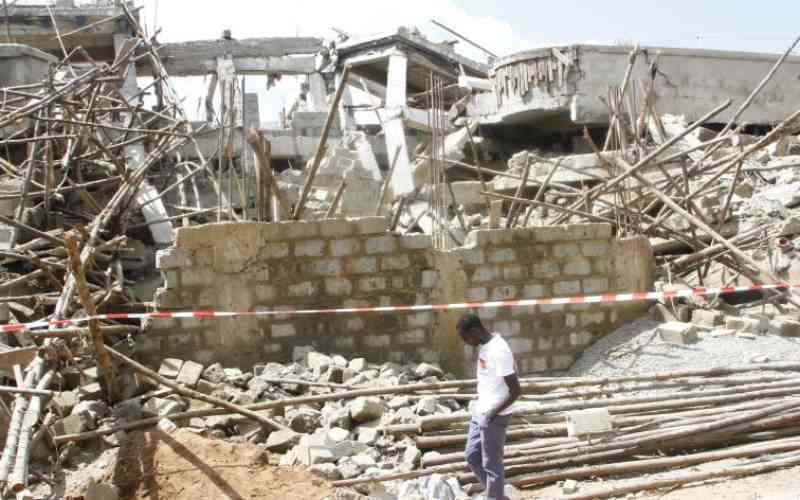A Code Ignored, Lives Lost
Nearly two decades after Nigeria adopted the National Building Code (NBC), most of it remains ignored. The consequences are deadly buildings collapse regularly, lives are lost, and trust in the construction industry continues to fall.
The code, first approved in 2006 and revised in 2018, was meant to regulate how buildings are planned, built, and maintained. But many states have yet to pass the laws needed to enforce it. As a result, Nigeria’s construction sector runs mostly without rules.
No Rules, No Safety
Cities like Lagos, Abuja, and Port Harcourt are growing fast. But without a standard code in place, they are filled with unsafe structures, poor materials, and developers who cut corners.
Experts say the lack of a national enforcement system allows bad practices to thrive. There are no clear guidelines for fire safety, structural strength, or energy efficiency. Many buildings go up without input from qualified professionals.

Investors and Professionals Losing Faith
This lawless environment is not only dangerous it’s also scaring off investors. Developers and insurers are avoiding projects in Nigeria because of the risks involved. Without regulation, no one can guarantee the safety of a building or the return on investment.
Even climate-friendly planning is suffering. The building code includes green building practices, but most developers ignore them. This makes it hard to attract funding for sustainable housing.
Quackery on the Rise
Without proper oversight, unqualified workers dominate the industry. Many developers hire people who are not trained architects or engineers. They often use poor materials and build without approved plans. This leads to weak structures and frequent disasters.
Professionals like architects, quantity surveyors, and engineers say the industry is under threat. Their roles are being sidelined by people who simply want to make a quick profit.
Collapse Statistics Are Alarming
From 1974 to 2025, Nigeria recorded 653 building collapses and over 1,600 deaths. Lagos alone accounts for more than half of these tragedies. For comparison, Kenya recorded just 86 collapses in 10 years and reduced the number sharply after enforcing reforms.
What Experts Are Saying
Obafemi Onashile Quantity Surveyors Board
He believes the solution is to create a new national commission to regulate construction. He blames poor coordination and lack of oversight for building collapses, rising quackery, and the absence of foreign investment in the sector.
Mobolaji Adeniyi Nigerian Institute of Architects
Adeniyi says many buildings are approved without input from qualified professionals. She notes common issues like substandard materials, weak foundations, and poor supervision. She calls for digital monitoring, public project registries, and stronger penalties for violators.
Dr. Victor Oyenuga Structural Engineer
Oyenuga points to basic safety failures like lack of protective gear and poor staircase dimensions in public buildings. He argues that supervision by trained professionals is the only way to ensure safety. Money, he says, should never be placed above human life.
Dr. Jesse Nor Town Planning Expert
Nor warns that without a legal framework, Nigeria’s building system is chaotic. He calls for stronger enforcement of urban plans and national standards. Without enforcement, he says, all development plans no matter how good will fail.
The Way Forward
Nigeria cannot afford to ignore the building code any longer. States must pass laws to enforce it. Regulatory bodies should be funded, trained, and empowered to act. Public education is also keympeople need to understand the risks of unsafe construction.
Without serious action, buildings will keep falling, lives will keep being lost, and Nigeria’s cities will keep growing in the wrong direction.



